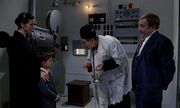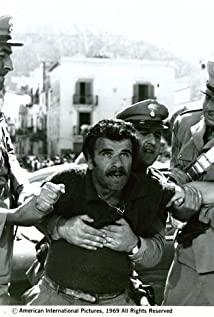So what exactly does it tell besides the story of Duoduo and Alfredo? First of all, in the name of the film, it shows the Italian people's desire for new things and entertainment. The war made them live in poverty and lack of spiritual world. The film has become a channel for them to connect with the outside world and an outlet to express their pressure. The American films shown in the "Cinema Paradiso", the cinemas are run by priests and are taken over by private property owners, and the "pornographic" scenes in the films were censored and deleted to the public broadcast of the full version, all of which reflect the Italian people's dissatisfaction with the lack of New life in war, yearning for and participation in new developments. Secondly, it expresses the mental state of the Italian people after the war, of course, through some trivial things in life. For example, the young people waiting to start work in the square every day, the illiterate young and middle-aged people taking exams with elementary school students, and the crazy man in the square who constantly shouted, "The square is mine", reflecting the trend of militarism. There is fragility, ignorance, madness, and... the helplessness of lovers being separated forever under the great era. The love line of the protagonist Duoduo only begins to ferment in the last third. This passage is full of passion and romance, which makes people seem to feel some kind of hope. But the ending is sad. Maybe it was caused by the status of the woman's father, maybe it was caused by the rigid system that Duoduo had to do military service, maybe... It's just that the torrent of the times rolled the two forward involuntarily, and Duoduo never again Falling in love with someone else, he will never forget that girl, but that girl only lives in his memories. This love is also a symbol of beauty in the past years, but beautiful things are always not eternal. In the end, the movie ironically sends Duoduo to Rome, and then he has been there for thirty years, never returning to the place where he was born. That's what Alfredo thought, the only place to go for the future. He abandoned the past, history and family, and his precious relationships, just to rush farther and stronger, which made me think of modern China, or, more importantly, myself. This reflective issue raised by the director is also one of the core of the film: "One cannot forget one's roots."
"Life is not a movie, life is much harder than a movie." On the surface, this sentence seems to be sighing at the helplessness of life, or criticizing the beautification propaganda in the media age. Is it because the director starts from his Italian identity and expresses his love for the United States. An irony of economic culture shock? Because of the impact of the economy and culture, young people need to go to Rome, and they need to forget their roots and struggle, but shouldn't these things be enjoyed in real life? In my opinion, Alfredo only sees the opportunities that his generation lacks, and ignores the most important thing in each generation - that is, the precious, irreplaceable, irreversible love of those around you .
View more about Cinema Paradiso reviews











